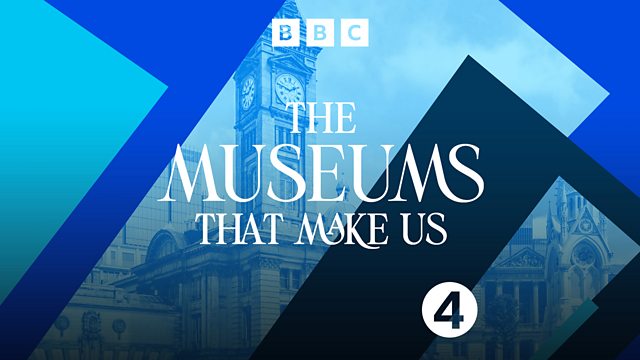Bristol's M Shed museum
With Bristol at the centre of debate about colonial history and statues that recall it, Neil discovers that it isn't the image of a Slave Trader that the museum puts centre stage.
Neil MacGregor presents a new series for ΒιΆΉΤΌΕΔ Radio Four celebrating the role and ambition of museums the length and breadth of the country, and in the process he'll be finding answers to the question βWhat are Museums For in 2022β.
With the toppling of the statue of the slave trader Edward Colston in 2020, in the wake of the worldwide protests over the murder of George Floyd, Bristol became a centre of debate about the way we talk about colonial history, and what we do with objects that describe recall it. The statue, now on its side and still covered in paint, is in Bristol's M Shed museum, but that's not the object that the museum have chosen to tell the story of their museum's relationship with the city today. Instead Neil is shown around one of the city's old Lodekka Buses, which is used to tell the story of the Bristol Bus boycott of 1963. It arose from the refusal of the Bristol Omnibus Company to employ black or Asian bus crews in the city. In common with other cities, there was widespread racial discrimination in housing and employment at that time. But the boycott, led by youth worker Paul Stephenson and the West Indian Development Council, worked. Soon after, the restrictions were dropped and it was considered to have been influential in the movement that lead to the passing of the Race Relations Act of 1965.
Museums have always been telescopes trained on the past to help locate a sense of place in the present. Neil believes that role is an active one, responding to changes in the people museums serve and the shifting social and cultural landscape they inhabit. After spending much of his life at the centre of our national Museum life in London, Neil is taking to the road to discover more about the extraordinary work being done in Museums outside the capital, from Stornoway to Stowmarket, and Belfast to Birmingham.
In each episode he visits a single museum, inviting them to choose an object from their collections which they feel best illustrates their civic role, and the way they relate and want to relate to their local audience. Very rarely have they chosen a crown jewel from their often priceless collections. More often it's an object with a particular local resonance, or which helps tackle episodes from the past which are being viewed very differently by citizens in the 21st century.
Heβll be visiting the great national museums of Wales, Northern Ireland and Scotland, as well as major city institutions in Birmingham, Leeds, Liverpool and elsewhere. And in spite of the challenges of the last two years, everywhere he meets passionate teams who are dedicated to providing a unique experience for both local audiences and visitors from further afield.
Neil writes: βWhatβs going on in our museums is at once challenging and exciting and it can only really be understood by visiting as many as possible and finding out how they have approached what is a vital role in providing a sense of local, regional and national identity.β
Producer - Tom Alban
Original music composed by Phil Channell
Last on
More episodes
Previous
Next
Broadcasts
- Tue 12 Apr 2022 13:45ΒιΆΉΤΌΕΔ Radio 4
- Sat 15 Jul 2023 14:45ΒιΆΉΤΌΕΔ Radio 4

